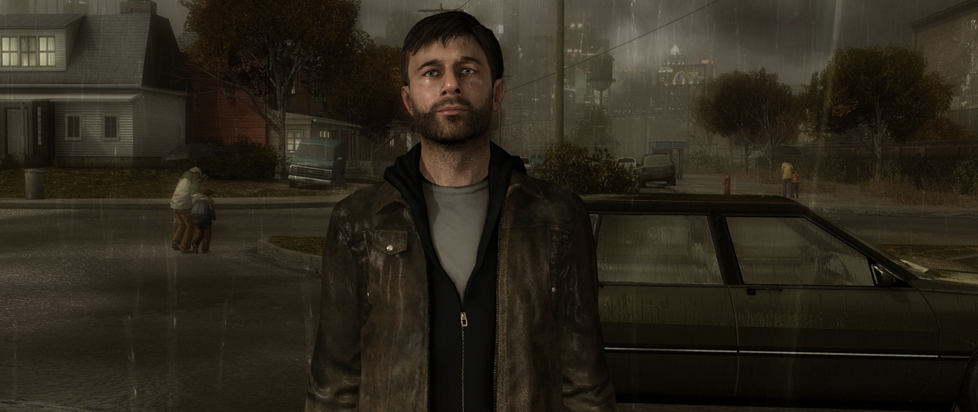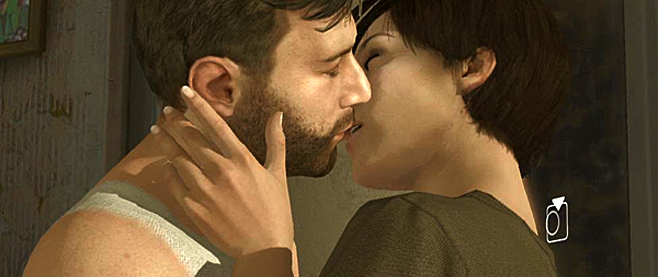
No More, Please
 This column is a reprint from Unwinnable Monthly #100. If you like what you see, grab the magazine for less than ten dollars, or subscribe and get all future magazines for half price.
This column is a reprint from Unwinnable Monthly #100. If you like what you see, grab the magazine for less than ten dollars, or subscribe and get all future magazines for half price.
———
Revisiting stories, old and new
———
It can difficult to make sense of the fact that people continue to give David Cage substantial amounts of money to create videogames. Fahrenheit/Indigo Prophecy, released in 2005 by Cage’s development company Quantic Dream, was a rough but ambitious title more compelling, perhaps, in its elevator pitch than its execution. 2010’s Heavy Rain was a rich, fascinating mess with a surprisingly effective rubber band concept of storytelling that stretched to accommodate player actions without ever quite losing its intended shape. 2013’s Beyond: Two Souls, on the other hand, was just a mess and, worse, it was a mess that threw into question whether the messiness of Quantic Dream’s previous two games was the result of ambition and innovation or just incompetence.
In the interest of full disclosure, it should be noted that I bought all three of these games and it’s quite likely that I’ll buy Cage’s upcoming Detroit: Become Human. On some level, this is because I have trouble letting go of a lost artistic clause — I kept buying Rick Moody books long after it became clear that he really didn’t have much of interest to say or any reliably interesting way of saying it — but there is also a particular kind of failure in David Cage’s work that, at least for me, is not entirely uninteresting or unenjoyable.
[pullquote] It is possible, and perhaps even necessary to enjoy David Cage’s oeuvre contra Cage. [/pullquote]
There are not many videogames that are so bad that they’re good. I’m not sure that even Heavy Rain or Beyond: Two Souls quite get there. Heavy Rain is too close to being genuinely good to quite qualify, and Beyond: Two Souls is, like most blockbuster-aspiring dozen-hour-plus story games, maybe too long, too fragmented and too demanding of player time and attention to really engender ironic play. And maybe we’re a bit too inured to bad stories and bad storytelling in our games for there to be sufficient reward in seeking out for its own sake the point at which incompetence becomes pleasurable — that is, the transition between failure and camp.
I have a suspicion that videogame criticism tends to avoid considerations of camp because opening the door to that concept would quickly engulf the vast majority of the medium. Evan Narcisse’s 2014 review of Bayonetta 2 describes how the game’s opening boss fight—“against a giant dragon wound around a skyscraper — would be the mind-blowing finale on many other titles,” but I’m not entirely sure that Bayonetta 2 is alone in its methodology of working to start with a bang and just get louder from there.
But camp, at its center, if camp can be said to have a center, is not about excess quite as much as it is about artificiality. In her 1964 essay “Notes on Camp,” Susan Sontag observes that “Camp sees everything in quotation marks. It’s not a lamp but a ‘lamp’; not a woman, but a ‘woman.’ To perceive Camp in objects and persons is to understand Being-as-Playing-a-Role.” Camp de-centers naturalism and normativity in favor of a valorization of performance and self-conscious artifice. Interestingly, while I think Sontag’s essay is somewhat weak on the function of the audience rather than the artist in the creation — or recognition — of camp, her distinction between “naïve” or “pure” camp and the “usually less satisfying” intentionally-created or “deliberate” camp recognizes that artist intention is not a critical element of camp.(Meaning it is entirely possible for the self-consciousness of camp to reside in the audience and not the artist.)
[pullquote] We can also, however, and with consciences entirely clear, stop giving David Cage money. [/pullquote]
If camp in part is about the reclaiming of pleasure — a vigorous celebration not just of “bad” art but of the “bad” in art — it is also not infrequently about reclaiming art from the artist. It is of no particular consequence as to how Tommy Wiseau or Ed Wood intended their work to be received, nor that Jim Sharman and Richard O’Brien would have found the cult following that coalesced around The Rocky Horror Picture Show a bit more congenial than Wood might have or than Wiseau lets on.
Which is to say, that it is possible, and perhaps even necessary to enjoy David Cage’s oeuvre contra Cage. The elements that are interesting about Heavy Rain tend to involve the places where the game violates the conventions of videogame storytelling — the moment where Cage uses a cutscene to mask the fact that a character is no longer under player control and takes an action of his own volition without the player’s knowledge, or the fact that the game’s story marginalizes its own major characters by constructing itself to proceed largely intact regardless of whether most of those characters are alive or dead. It’s not terribly important whether Cage understood what he was doing in the creation of those elements, or whether they serve as innovations as a result of genius or incompetence. It doesn’t really matter, at the end of Beyond: Two Souls, whether we are laughing with Cage or at him. (Spoiler: It’s the latter.)
We can, on the other hand, recognize with some notable and laudable exceptions that the creation of camp, especially “naïve” camp, tends to be a one-off endeavor. We can learn from Heavy Rain (even if it seems that Cage himself cannot) and we can even, should we so desire, sit down with Beyond: Two Souls and joyfully throw toast at the screen. We can also, however, and with consciences entirely clear, stop giving David Cage money. Or at least most of us can, and I implore you to do so, if only to save me from myself.
———
Gavin Craig is a writer and critic who lives outside of Washington, D.C. Follow him on Twitter @CraigGav.




